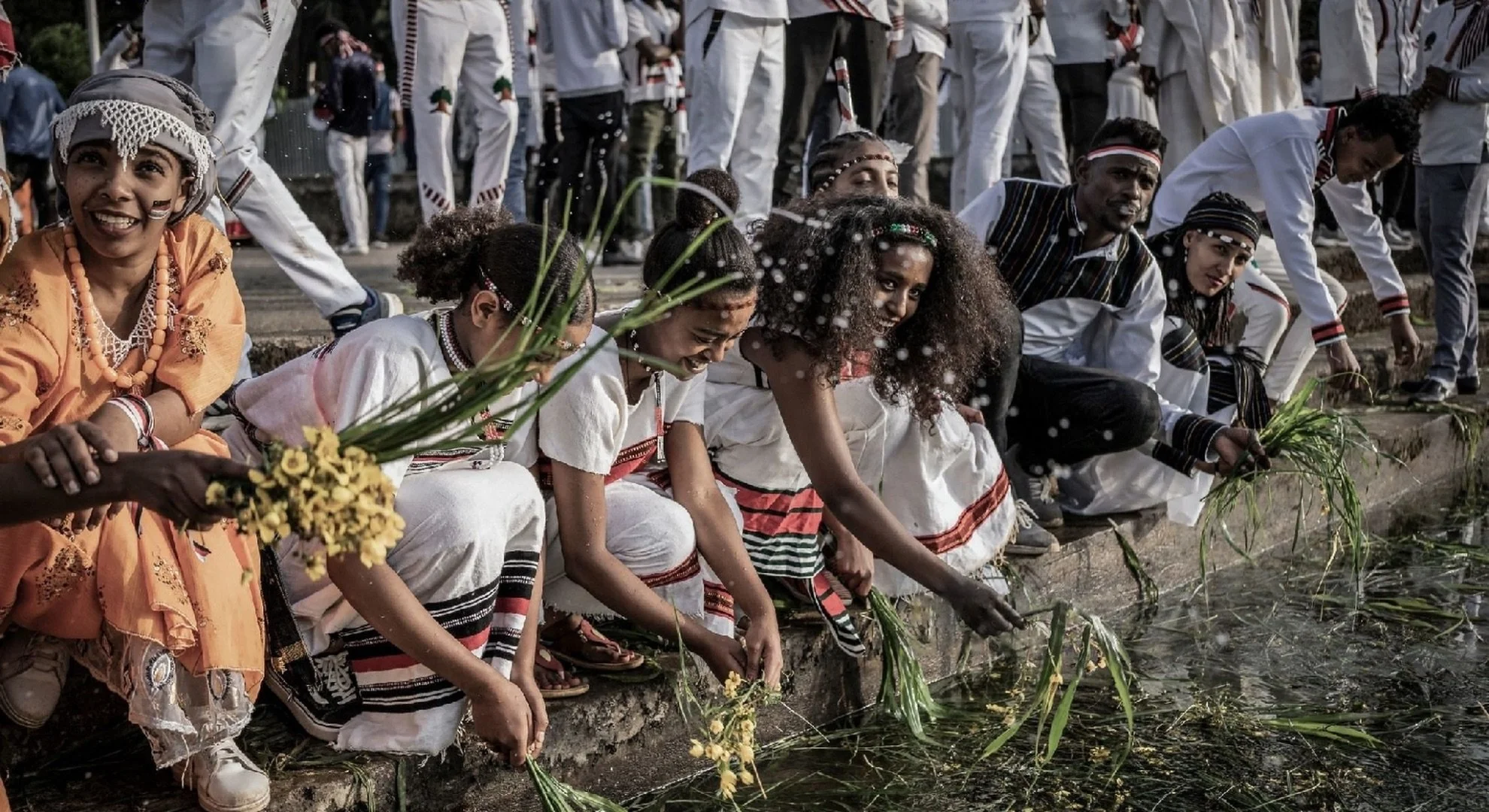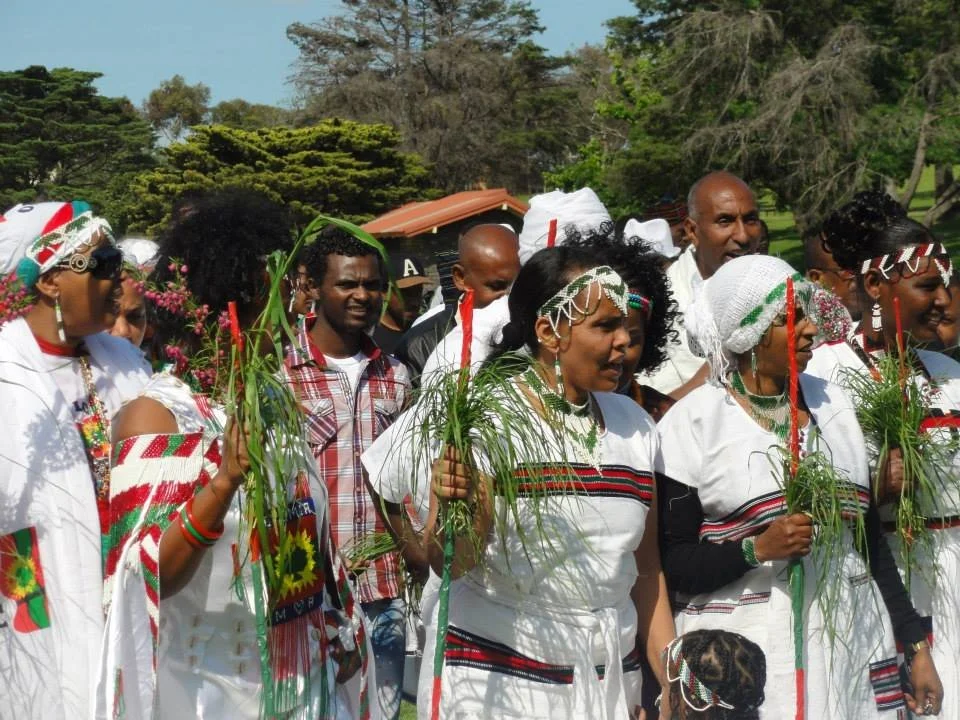WAAQEFFANNA: The Indigenous African Spirituality Christianity Tried to Erase
Waaqeffanna is the indigenous spiritual tradition practiced by the Oromo people of Ethiopia, and it is one of the oldest monotheistic belief systems in the Horn of Africa. The tradition centers on Waaqa, a single, all-powerful, and compassionate creator deity. Waaqeffanna offers deep cosmological, ethical, and ecological wisdom rooted in African indigenous spirituality, much of which was disrupted with the advent of Christianity and Islam in Ethiopia.
Core Aspects of Waaqeffanna
Monotheism:
Waaqa is seen as the supreme being who created the universe and governs all aspects of life.
The concept of Waaqa as one god predates Abrahamic religions in the region.
Ayyaana (Spirits/Energy):
Waaqa manifests through Ayyaana, spiritual forces or intermediaries that guide people, clans, and nature.
Each person or clan may be associated with a specific Ayyaana, acting as a guardian spirit.
Qaallu Institution:
Qaallu are spiritual leaders and custodians of the tradition—similar to priests but more aligned with diviners or shamans.
They also held moral and social authority, acting as peacemakers, healers, and keepers of truth.
Safuu (Sacred Order/Ethics):
A foundational concept referring to the divine moral law, respect for cosmic balance, and social harmony.
To live in violation of Safuu is to act unjustly or in disharmony with Waaqa’s will.
Sacred Nature:
Waaqeffanna emphasizes a sacred relationship with the land, rivers, mountains, and trees—especially sacred sycamore trees (oda), under which gatherings and rituals take place.
Destruction & Suppression Through Christianity
With the spread of Ethiopian Orthodox Christianity, particularly under the Aksumite Empire and later Solomonic dynasty, Waaqeffanna and similar indigenous practices were systematically eroded:
Religious Supremacy and Conversion:
The Christian state labeled indigenous beliefs as pagan or satanic.
Christian missionaries and rulers pressured the Oromo to abandon Waaqeffanna, often by force or coercion.
Cultural Erasure:
Sacred spaces were desecrated or re-appropriated as Christian holy sites.
Oral traditions and rituals were dismissed, demonized, or lost due to fear of persecution.
Marginalization of Qaallu Leaders:
Qaallu leadership was delegitimized, persecuted, and replaced by Christian clergy.
This stripped the Oromo of both spiritual guidance and socio-political cohesion.
Language & Identity Suppression:
The promotion of Amharic (linked with Christian hegemony) over Oromo languages led to cultural alienation.
Oromo spiritual terms and cosmologies were pushed to the margins.
Islamic Influence:
In some Oromo regions, Islam also took root, replacing Waaqeffanna, although often more gradually and with some syncretic blending.
Contemporary Resurgence
Despite centuries of suppression, Waaqeffanna has survived—especially in rural Oromo areas—and is experiencing a revival:
Modern Oromo nationalists and cultural movements have reclaimed Waaqeffanna as a symbol of indigenous identity and resistance.
There’s growing interest among scholars, diaspora communities, and cultural activists in restoring its cosmology, ethics, and rituals.
In 2018, Waaqeffanna was officially recognized by the Ethiopian government as a legitimate religion, reflecting a turn toward spiritual sovereignty.
Final Reflection
Waaqeffanna is a powerful example of African spiritual knowledge system that predates and Abrahamic traditions in depth and structure. The destruction it faced under Christianity is part of a larger colonial and religious pattern across the continent—where indigenous knowledge systems were dismissed to justify control. But like many African traditions, Waaqeffanna is not dead; it is alive, breathing, and resisting—rooted in land, language, and the resilience of memory.
References
Books & Academic Papers
Gadaa: Three Approaches to the Study of African Society By Asmarom Legesse
Religious Syncretism and the Survival of Indigenous Beliefs in Ethiopia By Donald Donham
The Language Politics of the Ethiopian Regimes and the History of Written Afaan Oromo By Mekuria Bulcha
Articles and Online Resources
“Waaqeffannaa: An African Traditional Religion in Ethiopia” – The Reporter Ethiopia (2016)



